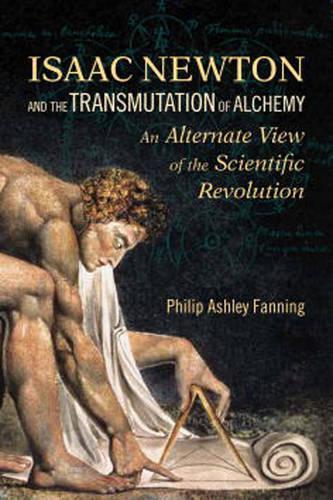
Isaac Newton and the Transmutation of Alchemy: An Alternative View of the Scientific Revolution
(Paperback)
Publishing Details
Isaac Newton and the Transmutation of Alchemy: An Alternative View of the Scientific Revolution
By (Author) Philip Ashley Fanning
North Atlantic Books,U.S.
North Atlantic Books,U.S.
15th July 2011
27th July 2009
United States
Classifications
General
Non Fiction
540.112
Physical Properties
Paperback
272
Width 153mm, Height 228mm, Spine 20mm
408g
Description
Isaac Newton was an alchemist. That fact is usually brushed aside as unrelated to his leading role in the scientific revolution, but author Philip Fanning has re-examined the evidence and concluded that the two were really inseparable. In this book Fanning shows us the surprisingly profound influence that Newton's study of alchemy had in shaping his scientific thinking. Transcending simple empiricism, alchemy was an experiential science that involved the experimenter as much as the subject of experiment, and it had profound spiritual and psychological dimensions. Often dismissed as simply an unscientific precursor to chemistry, it was in fact a complex Gnostic pursuit that drew upon the entire mental and moral being of its practitioners. Instead of the usual story of reason, curiosity, and scepticism overcoming ignorance, superstition, and gullibility, Fanning tells of an ancient, carefully tended occult institution passed from generation to generation until at last it came down to the man who gave the world modern science. He also details the ways that this infant science rose up to establish a limited but dominant paradigm of truth that relegated the major esoteric and spiritual tradition of alchemy to the fringes of discourse prior to its twentieth century revival by psychologist Carl Jung and other innovative thinkers.
Author Bio
Educated at Swarthmore, Philip Fanning gained a scrupulous understanding of the culture of modern science during twenty years with W. H. Freeman and Company, the book-publishing arm of Scientific American. His discovery that Isaac Newton was an alchemist led him to a research project that consumed three years and resulted in this pioneering study. As he observes, "I can't help but feel that even though Newton deliberately concealed his greatest contribution to the history of thought, part of him hoped it would eventually see the light of day." Fanning is also the author of Mark Twain and Orion Clemens- Brothers, Partners, Strangers (2003). He lives in San Francisco.
